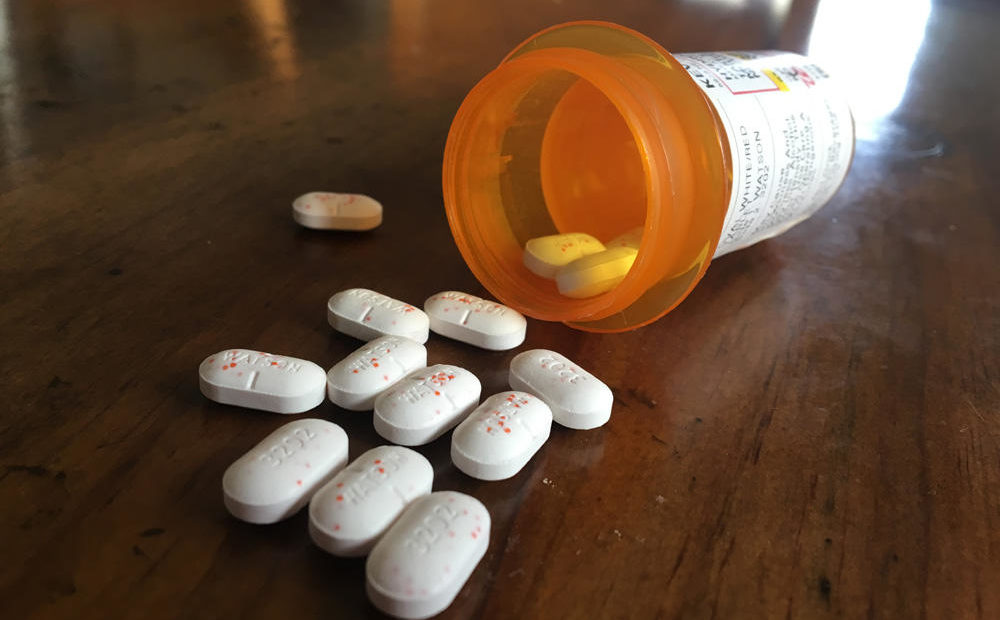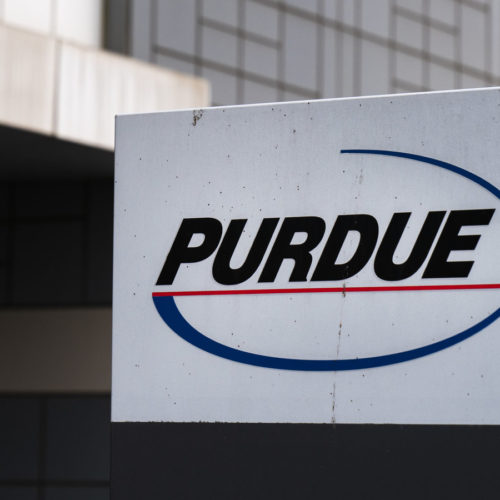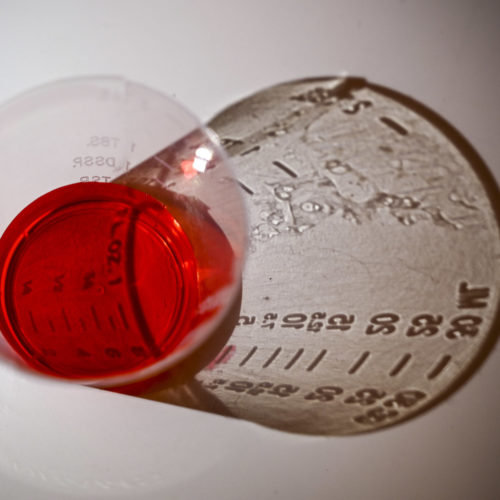
Washington Lawmaker Wants To End ‘Better-Than-Boeing’ Tax Break For Prescription Drug Warehouses
Listen
Each year in Washington, opioid overdoses kill approximately 700 people. In response to this crisis, a state lawmaker is proposing to repeal a tax break that benefits opioid distributors. The money raised would fund drug treatment services.
Democratic state Rep. Lauren Davis says Washington’s current approach to helping people with substance use disorders is like a stool that’s missing two legs. While Medicaid pays for treatment, it doesn’t fund pre-treatment services which Davis calls the first leg of the stool.
“Things like outreach and engagement to individuals in active addiction who are in emergency departments, in homeless encampments, living in tents, wherever they are – encouraging them to seek care,” Davis explained during testimony Monday before the House Finance Committee.
Davis says the state also fails to fund the third leg of the stool – recovery support – which involves helping people remain drug-free after they get treatment. To fund what she calls these “continuum-of-care services,” Davis wants to end a tax break that’s been on the books for more than two decades.
Since 1998, prescription drug resellers in Washington have received a 250 percent discount on their business and occupation tax rate – a rate even lower than what Boeing pays. In 2018, 29 companies paid $8 million in B&O tax on more than $5.8 billion in taxable revenues, according to the Washington Department of Revenue.
When the tax break was first enacted, Washington-based drug warehouses faced a competitive disadvantage with warehouses in Oregon that didn’t pay Washington B&O tax. But in 2015, the Legislature changed the law so that companies doing business in Washington now pay the tax even if they don’t have a physical presence in the state.
Over the years there have been efforts to repeal the preferential rate, including in 2013 when Gov. Jay Inslee included it in his inaugural budget. Last year, Democratic state Sen. Reuven Carlyle introduced a bill to end the tax break and put the proceeds into opioid abuse treatment in rural and high-needs areas.
Yet, the tax break remains on the books and today most of the benefit goes to just three companies – McKesson Corp., Cardinal Health Inc. and AmerisourceBergen Drug Corp. with more than 90 percent of the market and more than $500 billion in revenues in 2018. Those same companies are currently being sued by Attorney General Bob Ferguson for allegedly “fueling the state’s opioid epidemic” – a charge they deny. A trial is scheduled for this October.
Davis, who was first elected in 2018 and serves as the executive director of the Washington Recovery Alliance, says she decided to propose the elimination of the tax break after reading a public radio Northwest News Network story last year about the attorney general’s lawsuit and the history of the preferential tax break. The value of the discounted tax rate is approximately $20 million a year.
“Twenty million dollars annually in these services … would completely upend the opioid and methamphetamine epidemics in the state of Washington and that is not an exaggeration,” Davis said in her testimony.
The drug distributors, through their trade group, the Healthcare Distribution Alliance (HDA), say they are the “primary logistics provider” for the pharmaceutical industry and warn that if the tax break goes away, it will result in higher consumer costs.
“An increase on prescription drug warehousing firms would compound costs throughout the entire healthcare supply chain,” testified Lead Lindahl, senior director of state government affairs for the HDA.
A Seattle pharmacy operator also testified that drug resellers would likely pass on the higher taxes to in-state pharmacies.
Meanwhile, a lobbyist for the Washington State Association of Drug Court Professionals urged that the bill be broadened to fund services like medicine assisted treatment in jails.
But Robert Smiley, the founder of The Hand Up Project in Snohomish County, said the focus on pre-and-post-treatment services is what’s needed to address the opioid crisis.
“We’re opioid addicts, we need a different type of treatment,” Smiley said. “People do want help, there’s just no funding for it. They give up hope.”
Related Stories:

Several Drug Companies Considering Large Settlements To Resolve Opioid Suits
Confronted with a torrent of lawsuits across the U.S., several major drug companies are in discussions with authorities to resolve thousands of opioid-related suits filed against them. A government source close to the negotiations tells NPR that Purdue Pharma, Johnson & Johnson, Endo International and Allergan are looking to cut deals.

Politicians, Government Agencies Feud Over Payouts Tied To Opioid Epidemic
Government officials are bickering over hundreds of millions of dollars in settlements paid by Big Pharma, stemming from the nation’s deadly opioid epidemic. The pharmaceutical industry paid out more than half a billion dollars over the last year alone. All sides expect the scale of settlements to grow fast as more cases go to trial.
















